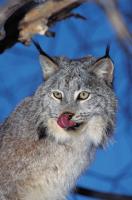Learning the language of school history: the role of linguistics in mapping the writing demands of the secondary school curriculum
Journal of Curriculum Studies, 38 (4):
413-429 (2006)DOI: 10.1080/00220270500508810
Abstract
This study uses the tools of functional linguistics to illuminate the writing requirements of the history curriculum in the context of Australian secondary schools. It shows how the resulting linguistic description was integrated into a sequence of teaching and learning activities through collaboration between linguists and content/pedagogic specialists. These activities were designed to improve students’ writing skills while simultaneously developing their historical knowledge. An independent evaluation of the approach pointed to positive changes in teachers’ attitudes and behaviours regarding the role of language in learning history. Students’ writing improved, particularly in terms of its organization and structure.
Description
Discusses genre and how mapping, awareness of genre and teacher collaboration can help secondary school children improve writing skills
Links and resources
Tags
community
@umatadema's tags highlighted
- sfl
- genre
- writing
- secondary
- 2016_e852
- language
- history
- curriculum
- linguistics
- mapping
- 2015_e852
- school
- schools
- learning
- 2013_e852
- functional
- readings
- corpuslinguistics
- historylesson
- literacy
- e852-13j
- discourseanalysis
- of
- the
- e852
- teaching-learning
- pedagogy
- metalanguage
- preprint
- australia
- eal
- and
- sociocultural
- teachercollaboration
- writingskills
- education




































